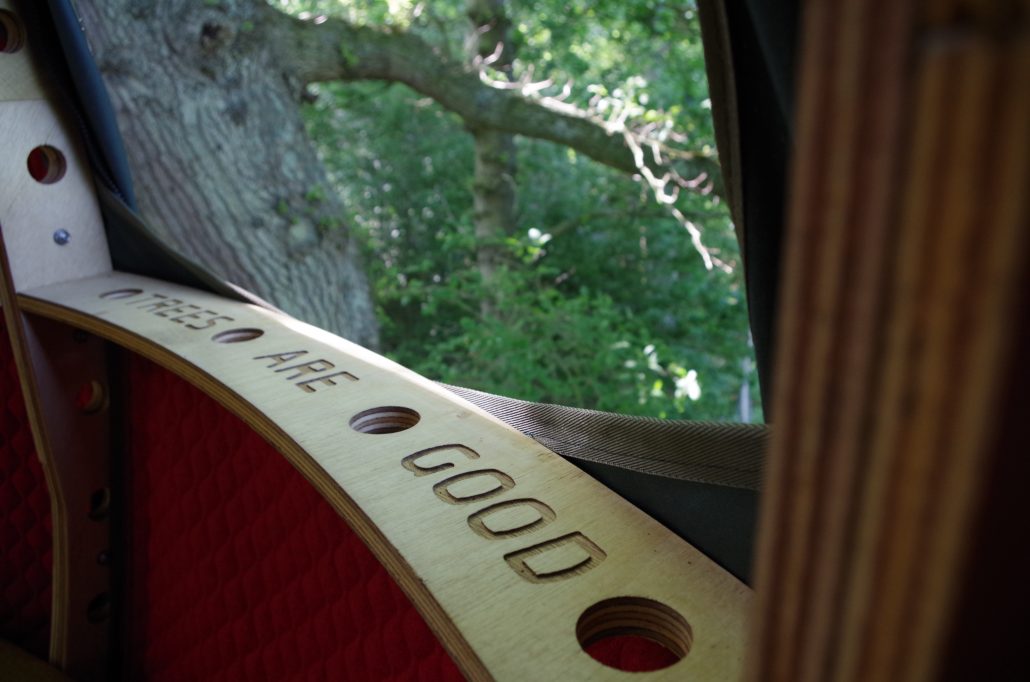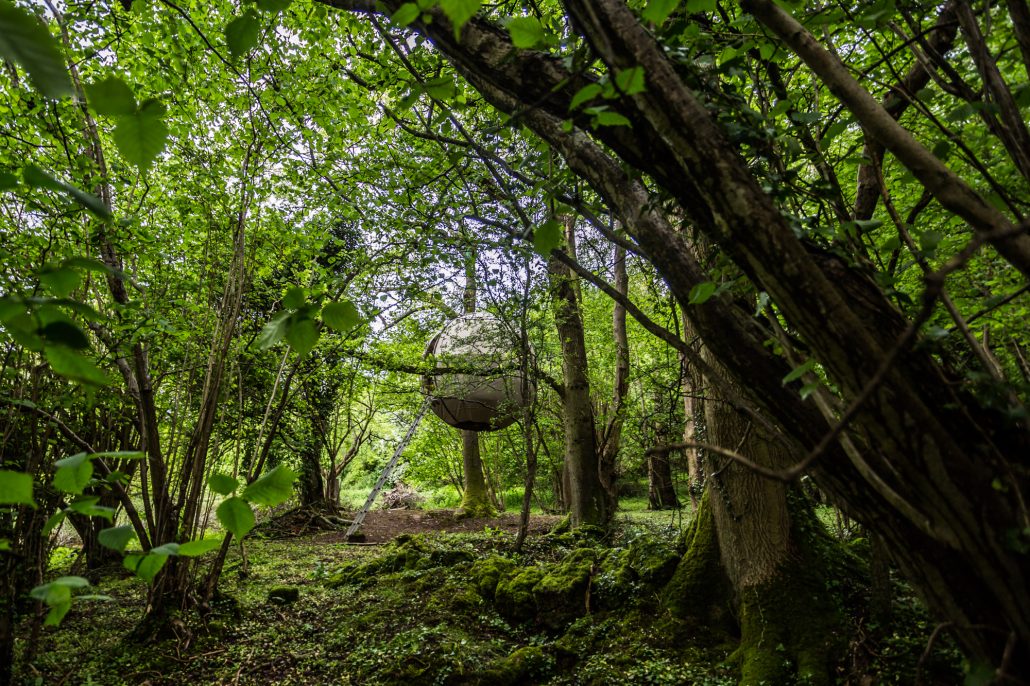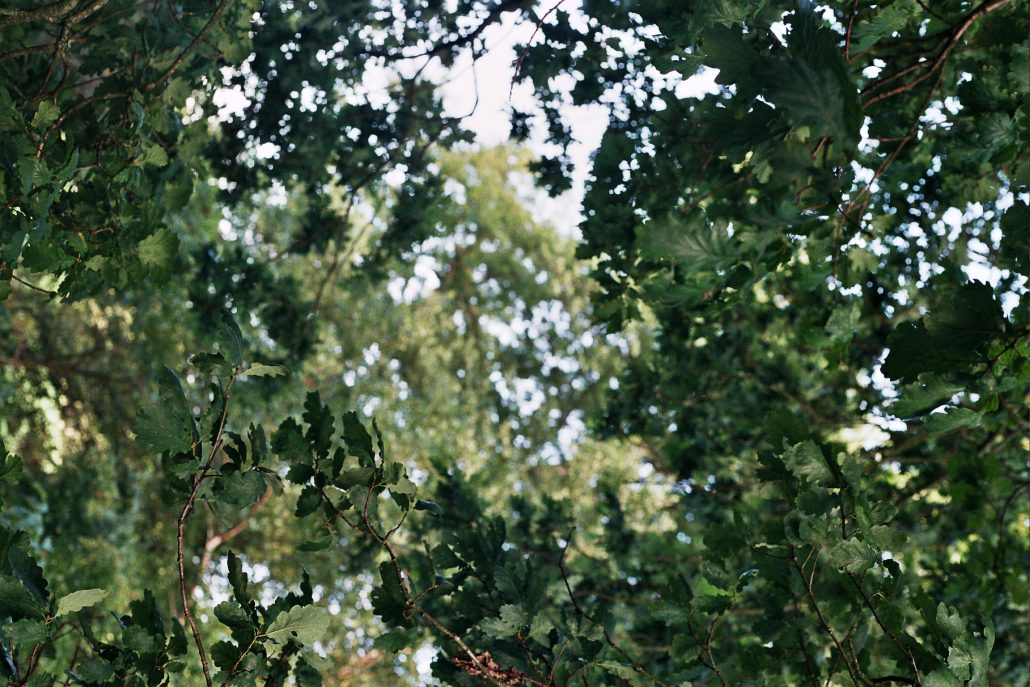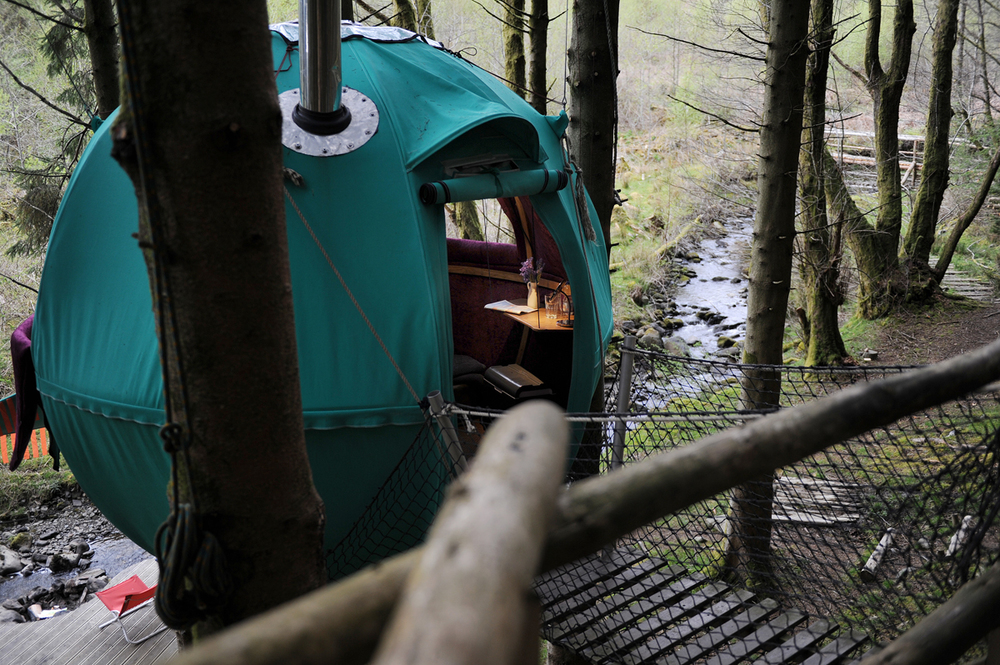The wonder of woodland
Trees can have a restorative and therapeutic effect on the mind; research has shown that recovery rates improve if patients can view trees from a hospital window. Additionally, the health of patients, staff and local communities can be dramatically improved by providing opportunities to exercise outdoors and access green spaces, including woodland.
According to NHS Forest, a project coordinated by charity The Centre for Sustainable Healthcare (CSH), less than 10 per cent of the population has access to local woodland within 500m of their home. However, with mounting evidence to show the health benefits of spending time outside in nature, the appeal of getting away from it all and escaping to a forest hideaway is high.
In Japan, forest therapy is standard preventive medicine. The Japanese term shinrin-yoku means taking in the forest atmosphere or ‘forest bathing’ and people are encouraged to visit forests to relieve stress and improve health. Based on ancient Shinto and Buddhist practices, research has found that the practice has measurable health benefits, which include lower blood pressure, reduced stress, lower blood sugar, improved concentration, diminished pain, improved immunity, less depression, increased vitality, better concentration, and increased creativity.

Trees can have a restorative and therapeutic effect on the mind
Research has also shown how exposure to forests boosts our immune system. While we breathe in the fresh air, we breathe in phytoncides – airborne chemicals that plants give off to protect themselves from insects. Phytoncides have antibacterial and antifungal qualities that help plants fight disease. When we breathe in these chemicals our bodies respond by increasing the number and activity of a type of white blood cell that has been found to kill tumours and virus infected cells in our bodies. In one study, increased cell activity from a three day, two night forest bathing trip lasted for more than 30 days. Japanese researchers are currently exploring whether exposure to forests can help prevent certain kinds of cancer.
The evidence section of the NHS Forest website features a host of research resources that outline the well-being benefits of contact with nature, but there are still organisational and cultural barriers that prevent these benefits from being realised. “Natural England recently published a report on social prescription that further demonstrates the positive impact of nature-based interventions in a range of mental health scenarios,” says Ben Williams, NHS Forest and Green Space project lead at CSH.
Last year, CSH organised (on behalf of the National Outdoors for All Working Group) a conference on Transforming Mental Health and Dementia Provision with the Natural Environment, which showcased a range of work successfully delivering clinical outcomes across the country. “In Scotland, nature-based interventions are being drawn into mainstream clinical practice for a range of health aspects,” he says. “However, there is a great deal of inertia in the clinical system, with the biomedical mindset deeply ingrained not only in clinicians but also in patients, who often fail to recognise the potential impact of some of these therapies”.

Researchers are currently exploring whether exposure to forests can help prevent cancer
It’s in our biology
Sleep deprivation is always a hot topic, with many of us regularly complaining that we don’t get enough, but a US study has found that camping can help us sleep better and reset our internal clock to a natural sleep cycle. A group of five people spent six days in the mountains with no gadgets, not even torches. The campers racked up nearly 10 hours sleep each night, almost three hours more than they were used to getting at home.
Our bodies keep time using our internal clock, releasing the ‘sleep hormone’ melatonin when it’s time to rest and cortisol when it’s time to wake. Traditionally, the sun has controlled our waking and sleeping system – as the sun rises melatonin production drops off and cortisol production increases – but less natural light and more artificial light confuses the body’s circadian rhythm (our biological clock) and adversely affects our sleep.
But it’s not just getting more natural light that makes being outdoors beneficial. The biophilia hypothesis suggests humans have an innate tendency to seek connections with nature and other forms of life. It’s believed that the deep affiliations we have with other life forms and nature as a whole are in our biology. So, sleeping in a natural environment surrounded by vegetation really can help us recharge our batteries and take rest and relaxation to a whole new level.

Sleeping in a natural environment surrounded by vegetation can take rest and relaxation to a whole new level
To enhance the beauty and benefits of the natural environment, structures that are made using natural materials should blend seamlessly with their surroundings and mimic shapes found in nature, making us feel part of the natural world.
Forested areas provide a unique and magical environment, but when choosing woodland structures it is important to consider that you will often be dealing with difficult ground that can range from flat to sloping. Choosing a structure that is suspended between the trees, such as our Tree Tent, can be a solution – flexible design allows installation in areas that were once believed to be economically unviable.
Our suspended tree house is positioned among the branches of a tree and actively moves with it mimicking the structures that animals and insects may make for themselves. Other eco-friendly options include timber structures made from sustainable ash. Integrated clear skylight panels bring in natural light and allow for stargazing at night. In our Firma Shell structure, a fully glazed front entrance affords uninterrupted views of the surrounding environment.
Spending time around trees and looking at trees reduces stress, lowers blood pressure and improves mood. Numerous studies show that both exercising in forests and simply sitting looking at trees reduces blood pressure as well as the stress-related hormones cortisol and adrenaline. Looking at pictures of trees has a similar, but less dramatic, effect. Studies examining the same activities in urban, unplanted areas showed no reduction in stress-related effects. Using the Profile of Mood States test, researchers found that forest bathing trips significantly decreased the scores for anxiety, depression, anger, confusion and fatigue, and because stress inhibits the immune system, the stress-reduction benefits of forests are further magnified.

Structures made using natural materials should blend with their surroundings and mimic shapes found in nature
A sense of freedom
Trees and green space encourage healthy lifestyles, improving public health. An ageing population is putting pressure on health and care services. An increasing proportion of the population is obese, most worryingly particularly in the young. International evidence has demonstrated the critical impact trees have in encouraging more active lifestyles and alleviating the symptoms of some of our most debilitating conditions such as dementia, obesity, heart disease and mental health problems.
“When you are outdoors you feel different – most people, young or old feel a sense of freedom, space and find it easier to relax,” says Marina Robb, director of Circle of Life Rediscovery CIC – a provider of nature-based experiences and courses that are described as educational, fun and life changing including woodland days, camps and forest school sessions for schools, holiday woodland days, CPD days and forest school training for adults.
“The science says that our cortisol levels reduce, so we are more open to learn and feel at ease in a group. We have evolved in the outdoors, coming inside more and more over the last few decades,” she continues.
“We speak about resilience a lot, the ability to ‘bounce back’ – and we can’t learn this if we try and make everything safe and ‘nice’. Then there is the living world in its magnificence and profound beauty and all the relationships that exist beyond the human; the trees being one of the great living beings on the planet; slow to grow and move but all with their medicines and characters, and wood for warmth and cooking. Climbing up high gives a different perspective, and what is needed in our world is the ability to empathise and see many perspectives,” she concludes.
It’s clear to see that an escape into the outdoors, even just for the night, can work wonders on our health. At Tree Tents we’re passionate about connecting people with the great outdoors and creating opportunities to disconnect from the pace of modern life. Our glamping structures are inspired by nature, designed to blend seamlessly with their environment and enhance the freedom that comes from camping in the wild.






